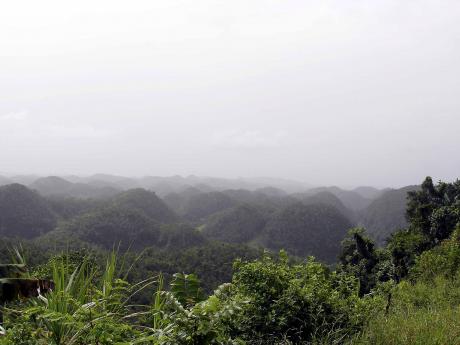Environmentalist bats for the Cockpit Country
Despite the Cockpit Country having 'protected area' designation, environmentalist Hugh Dixon is still worried that the Government could still try to extract the estimated 300 million tons of bauxite in the region, which spans sections of Trelawny and St Elizabeth.
According to Dixon, who heads the Southern Trelawny Environmental Agency, unless the nation's Parliament puts measures in place to prohibit mining in the Cockpit Country, the bauxite, which is valued at an estimated J$9 billion, could well be exploited by the Government, especially against the background of its massive balance of payments burden.
"Bauxite mining comes with a finite time frame. If you give that time frame a maximum of 20 years, then after that, all we know of the Cockpit Country and its richness of natural plant life and endemic species, land which farmers now use to contribute significantly to the country's economy will be lost forever," said Dixon.
"Any mining of bauxite will affect negatively the 66 communities and its 73,000 residents in the long run. There is a general lack of visionary state leadership, and both parties that have formed governments over the last 20 years are guilty of this," he added.
Government eyeing Cockpit
In a recent statement, Tourism Minister Edmund Bartlett hinted that the Government was eyeing the Cockpit as a source of generating income, albeit he did not speak to any plans for mining.
"We are going to be empowering the communities within the Cockpit Country to utilise their skills to make products from the rich fauna which exists in the area," said Bartlett. "Money has been placed in the EXIM Bank to facilitate this effort to further make use of the nutraceutical products that are available there."
In response to Bartlett's statement, Dixon intimated that he would prefer to see the Cockpit Country left in its natural state, embracing only developments that will not interfere with its longevity.
"The Giant Swallowtail Butterfly, which can be found in the Cockpit Country, is endemic to Jamaica. It is the second-largest of its kind in the Western Hemisphere, with a wing span of seven inches," said Dixon. "It needs a certain humidity for it to survive and replenish ... ecotourism is an option that could be safely explored.
"Bauxite mining is one sure way of destroying what we have in natural environmental resources," continued Dixon. "Roads to allow for bauxite mining will have to be made to access the bauxite. The money that would be used to build roads can be used to prepare environmentally friendly industries which will last long after bauxite has become extinct.
"There are over 1,500 endemic plants, and more is being discovered by scientific research, with active ingredients that can make the area rich into perpetuity," added Dixon.
Dixon also pointed out that 40 per cent of Jamaica's water originates from the Cockpit Country, noting that there are "five major rivers in the area from which 13 tributaries emerge.
"You can just imagine the overall negative effect bauxite mining would have on people's lives," said Dixon, in regard to the possible disruption of the water system.

